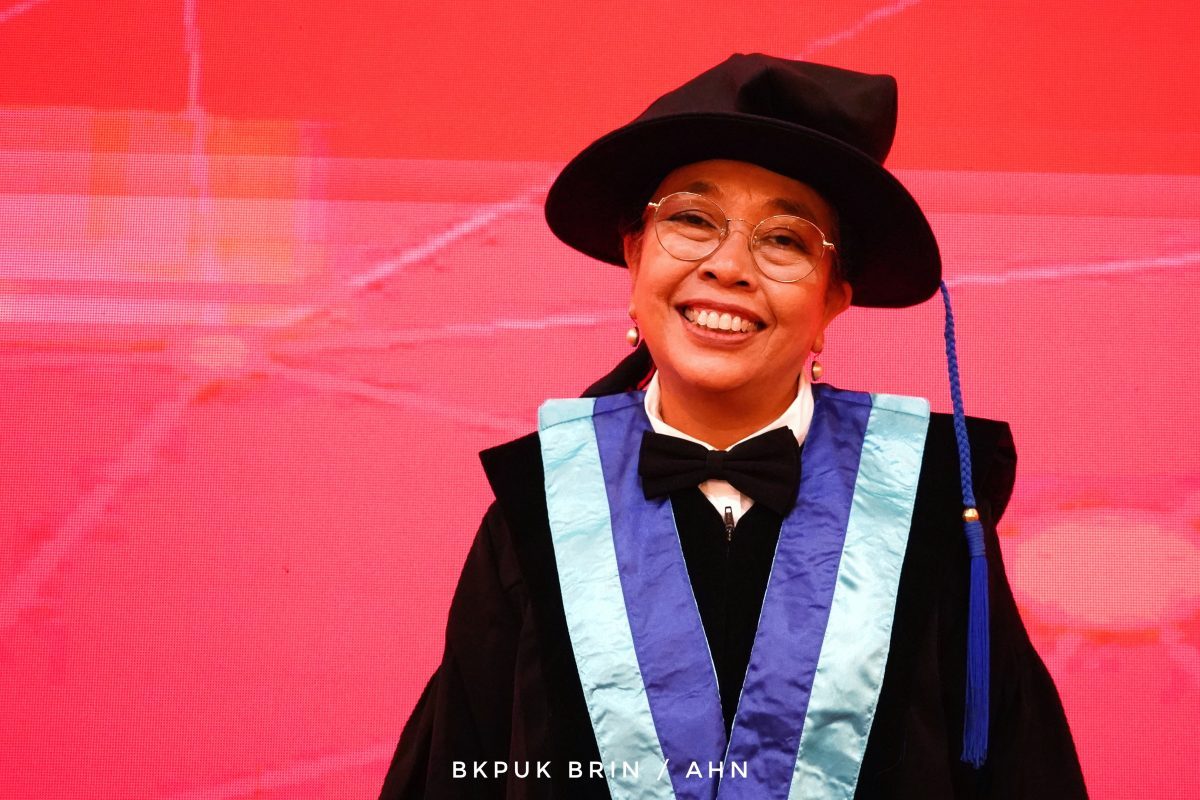With happiness and humility, Widjajanti, a researcher in the field of gender sociology from the National Research and Innovation Agency (BRIN) expressed her ideas about sociology, gender and the media, in her academic oration as part of her Inauguration as Research Professor, Thursday (10/3) in Jakarta. “On this occasion, allow me to present my scientific oration titled Contribution of Feminist Sociology Perspectives: Representation of Indonesian Women,” she said starting her scientific oration.
In her speech, Widjajanti firmly showed the contribution of feminist sociology in viewing changes and continuity. “Women are present in local, national, and global contexts, as responsible subjects and characters. Feminist sociology shows efforts to counter three representations, namely women’s knowledge, politics, and public space,” she explained.
The woman, who has received the Satyalancana Karya Satya award from the President of the Republic of Indonesia, said that armed with “personal is political”, women representation present simple and trivial realities, such as soap operas that are evidence of gender-based marginalization. “Media such as television is a medium of femininity that shackles women, unless the activists have gender knowledge and understanding,” she said.
Soap operas on television, according to her, have mixed up the construction of women, although they have the potential to negotiate with traditional roles. She said, as an illustration, negotiating the roles of men and women as shown in Drakor (Korean Drama). The method is subversive, changing the traditional role in modern packaging.
Enlightenment then occurs through observing the impact of the Covid-19 pandemic. The internet has given space for expression. Widjajanti said, one of whihc is change in the activities of women’s movement from protests, rally, to various activities on social media. “Frozen mobility to stop the transmission of Covid-19, making digital as a medium for coordination, resistance, and activities, both individually and in groups,” she said.
The researcher, who has published 62 scientific papers, states that the gender approach has not failed. Representation, discrimination, and segregation will instead produce innovation. Digital development generates questions and mechanisms in alternative public spaces. “G/f knowledge in Indonesia has not failed, but faces a backlash that twists and corners g/f,” said Widjajanti, who started her career as a candidate researcher in 1989.
Negative and Positive Scenarios
The woman, who is active in fostering scientific cadres, closed her speech by looking ahead through negative and positive scenarios of gender mainstreaming in the public sphere. “The negative scenario of Indonesia Emas does not include gender issues, which means that Gender Mainstreaming as a mandate by law is not being considered. This further demonstrates the paradox of women in organizations, state regulations, and the development,” she said.
Based on the phenomenon of law position and laws that require strengthening and assistance, this second child of four siblings views that the affirmative action policy is not limited to the issue of women in parliament but needs to be expanded. According to her, critical mass, representation in organizations, ghetto model education, as well as integration, are important in elevating the Indonesian context in measuring patriarchy. “Measuring patriarchy is important in the imagination of Indonesia Emas from the gender perspective,” she said.
Learning from other countries, feminist sociology depicts the weak representation of women in Indonesia. “Development (in Indonesia) is still seen from the aspects of economy and technology, positivistic-rational view, and blocks other potentials,” she explained. “The positive scenario is that women’s movement will continue to grow, in accordance with its ontology. Apart from that, history and individual characters such as passion and enigma continue to influence assistance works to handle cases and guard pro-gender policies,” she added.
Production of scientific texts needs support for publication and dissemination, as a material for negotiating the construction of femininity, through a subversive style against solid concentration of heterogeneous construction. Text is an effort to reconstruct the important role of women. In addition, this text is development of creativity and prosumer tendency of digital culture. Realizing the imagination of Indonesia Emas 2045 by incorporating elements of gender will liven up and provide a more detailed picture of Indonesia’s future. (drs)

